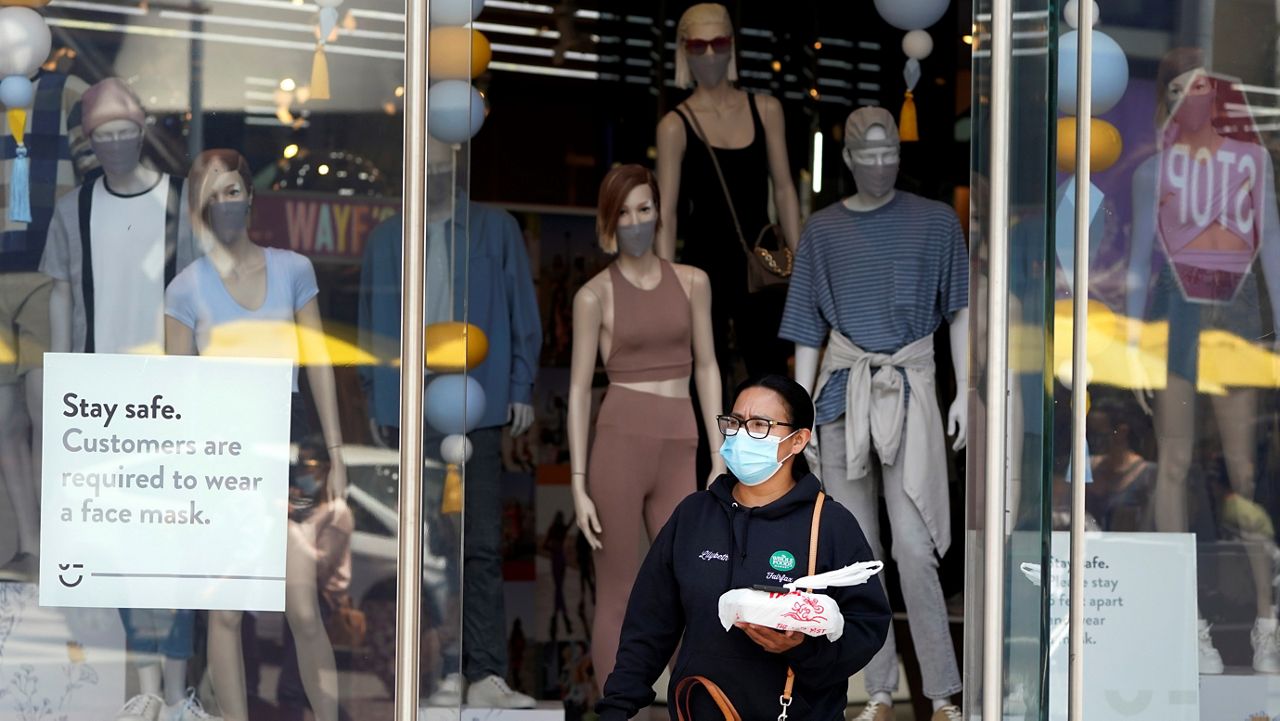COLUMBUS, Ohio — Columbus City Council passed an indoor mask mandate Monday evening that will take effect Tuesday morning.
The council’s ordinance follows an executive order signed by Mayor Andrew Ginther that reinstated a mask requirement in the city on Friday.
Columbus Public Health Commissioner Dr. Mysheika Roberts said a mask mandate is necessary to reduce the impact of COVID-19 on area hospitals.
“COVID-19 is spreading like wildfire here and across our country because of the delta variant,” Roberts said. “We all must work together to do everything we can, right now, to reduce the burden on our hospital systems before it's too late.”
Roberts said Columbus recorded 2,500 COVID-19 cases last week, a 37% increase from the previous week, as the city’s positivity rate rose to 9.6%.
All six members of the council who were present at the meeting approved the mask mandate.
Mask up Columbus! Council passed ordinance 2388-2021 directing residents to wear facial coverings or masks in indoor public spaces. The mandate is required for both vaccinated and unvaccinated residents. Ordinance goes into effect September 14th. #MaskUpCbus pic.twitter.com/olCbHJPaAu
— Columbus Council (@ColumbusCouncil) September 13, 2021
Franklin County’s hospital patient census is at its highest point since Jan. 20, said Dr. Mary Howard, executive director of Ohio State Wexner East Hospital.
“Our hospitals are running out of ICU beds, even as we're pulling together our best efforts to manage critical care patients,” she said.
The council meeting was briefly disrupted several times by attendees who shouted in opposition to the mask mandate.
Last week, Ginther said it was important for the council to pass a mask mandate in addition to his executive order. Anticipating a legal challenge to the city’s mask mandate, he said that having both executive and legislative action increases the likelihood that the mandate stands up.
Columbus Public Health is responsible for enforcing the mask mandate, which could result in fines for both businesses and individuals after a warning.
Businesses that “recklessly fail” to enforce the mandate face a $500 penalty for a second offense and $1,000 for a subsequent violation.
For individuals, the penalty is $100 for a second violation and $250 for a third violation.
The council exempted children under 3 from being subject to the mandate. Religious and medical exemptions were also included.
The ordinance will remain in place until further action from the Council, or until the mayor ends his state of emergency.



